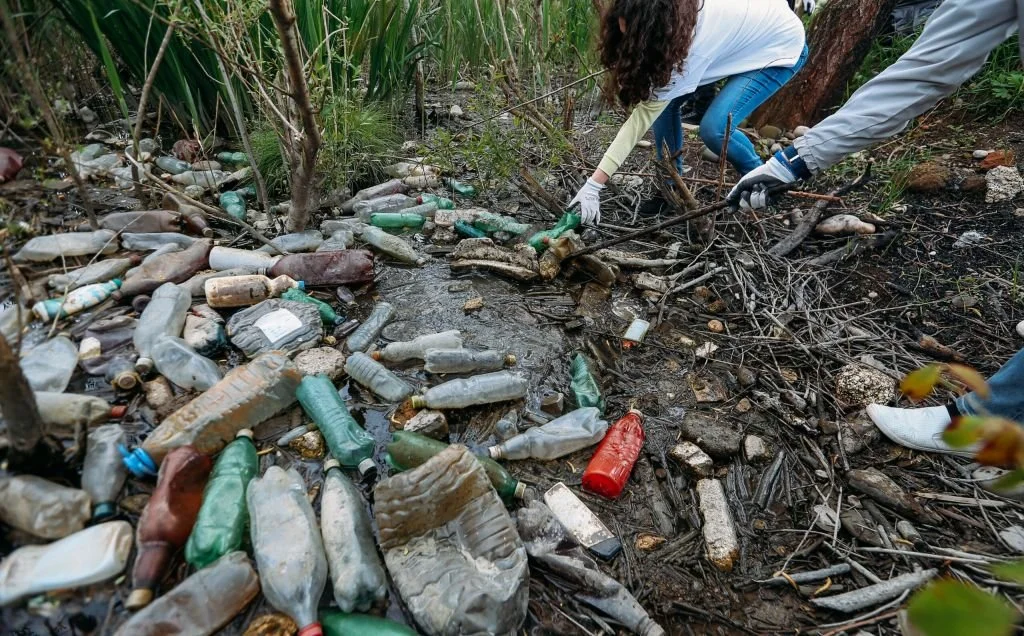Black Sea Pollution Crisis
Written by Wildlife & Welfare Researcher Charlotte Stadden
Background
This month, the focus of our Wildlife Calendar has been on the endangered species that inhabit Georgia. To delve deeper into environmental issues faced by the country, this blog will be looking into the Black Sea Pollution Crisis, a major environmental issue for Georgia and its wider region.
The Black Sea lies between Europe and Asia, and it is thought that due to its worsening conditions, more that 160 million people are being put in danger through exposure, not only in Georgia but Bulgaria, Ukraine, Russia, Romania, and Turkey, with the potential to cause a major humanitarian crisis. The cause of the Black Seas demise is multifaceted, meaning that finding a solution isn’t an easy task, but it has resulted in the Black Sea being named
the most environmentally degraded regional sea in the world
and so finding a solution is becoming more and more urgent. Some of the major factors at play include a staggering quantity of marine litter, thought to be twice as high as that found in the Mediterranean Sea, a high concentration of hazardous chemicals including pesticides and mercury, and an ever-increasing amount of microplastics that have been shown to have even worked their way into sediment as deep as 2,000 meters.
Image: © EU Neighbours East
The pollutants main entry to the Back Sea is through the constant flow of water being pumped in from the many rivers that lead to the Black Sea, that act as drainage from 17 countries, the largest of which is the river Danube. There are over 170 million people living alongside these rivers, contributing to the decline in condition through a combination of insufficiently treated sewage, erosion caused by human development, agricultural pollutants, and lack of proper waste management, all leading to the circumstances that we are seeing today.
The low water quality is not only resulting in an environmental catastrophe but also a humanitarian one. Throughout Georgia and the neighbouring countries water quality related illnesses are widespread, including diarrhoea and hepatitis A. Public awareness of the anthropogenic contributions that local people are having on the increasing pollution is often low and so not only does this mean that people continue to worsen the already bad situation, but also that diseases and illnesses will continue to spread. On top of the health concerns brought about through the degradation of the Black Sea, there are also economic concerns through the damage that has occurred to the tourism industries, meaning that many peoples livelihoods could be at risk.
Timeline of major events:
In the late 1940’s the Black Sea saw its first resource completely disappear, Oysters. This was as a result of the invading Japanese sea snails thought to be introduced through the fishing industry in 1947. Following on from this, the huge influx of overfishing caused other fish stocks to plummet and species of marketable fish available to catch to reduce by more than half.
Between the years 1973-1990 an almost unheard-of level of ecosystem collapse occurred with more than 60 million tons of dead bottom dwelling plants and animals thought to have been washed up on the shores of Romania and Ukraine, including 5 million tons of fish.
Following on from this ongoing disaster, Romanian scientists warned in the early 1990’s that the Black Sea could be the first major waterway devoid of any life leading to the formation of the Black Sea Commission (BSC), tasked with drawing up the Protection of the Black Sea Against Pollution, which was published in 1994.
Between 2018-2020 the “Waste Free Rivers for Clean Black Sea” initiative was implemented using financial aid provided by the EU of more than £1million. Its aim is to facilitate the cooperation between Georgia, Moldova, and Romania for the introduction of modern waste management practices to enhance the water quality and contribute to the reduction of marine litter.
In July 2019, new research was presented in Odessa stating that more than 124 chemicals that pose a threat to human and animal health had been identified in the Black Sea, through samples taken from the coastal waters of Georgia, Russia, and Ukraine as well as in the open sea.
Currently, fish stocks are so low that most of the Romanian fishing fleet only hunt for sea snails as the only way to stay economically viable. Six out of seven species of sturgeon are seriously endangered and local populations of dolphin are also endangered.
What’s being done?
The United Nations Environment Programme’s Global Programme of Action (UNEP’s GPA) has started to take action to attempt to solve this complex problem. Starting in Georgia UNEP hopes that the success of the wastewater management campaign can pave the way for local, national, and regional behavioural shifts, so that the often unknowingly contributing communities can begin to save their local environments. Working in partnership with the Global Wastewater Initiative, UNEP began its work with two Georgian villages situated along the river Khobi with its aim to facilitate practical training to local community members on how to build and adapt existing technologies for water treatment purposes and how to reduce the contaminated run-off from sewage, landfill, compost, and animal manure.
UNEP’s coordinator of the GPA, Vincent Sweeney, has stated that;
"The widespread contamination of the Black Sea is a very real and very complex problem with multiple countries, ecosystems and economies standing to be irreversibly affected if urgent action is not taken to stem the flow of wastewater from the region's riverside communities".
Let’s hope that this mitigating work being carried out by the UN and other organisations will begin to show progress and that the Black Sea may one day return to be a viable home for the many species of marine life that have been depleted due to human interference. The recovery of the Black Sea has the potential to improve the quality of life of the millions of people that inhabit its coastal waters and so it should be a priority for governments and local authorities to act as soon as possible to aid the important work being carried out.
If you would like to learn more about endangered species in Georgia, please visit our Wildlife Calendar:



